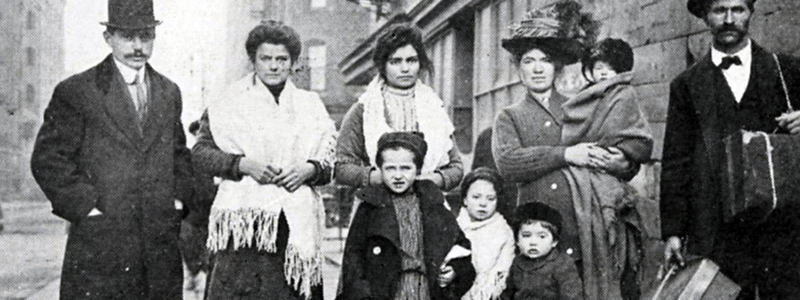Discovering Italian Genealogy
If you have ever wondered about your Italian Genealogy and Ancestry, but don’t know where to begin your research, it’s a simple process to discover more about your family’s history. Several tools are available both online and through the mail. As long as you have some basic information in regards to your Italian ancestors, you should be able to find a wealth of information.
Before You Begin
When you’re ready to learn more about your Italian family’s roots, it would be best to try and obtain as much information as possible in regards to your ancestors. Ask family members or friends, and inquire about past events. Italian census reveals that many immigrants came to America after the year 1820, due to a variety of reasons (labor issues, escaping war, etc). The overwhelming majority of these immigrants were from Sicily and Southern Italy, which are agricultural areas that suffered the most from economic issues.
Upon settling in America, many Italians spread out across the country, establishing homes in New York, Philadelphia, Chicago, Cleveland, and San Francisco, among others. With such a diverse pool to draw from, it’s no wonder how most Americans living today likely have some form of Italian ancestry.
Check with your relatives, and see if they are able to provide additional clues that would possibly be of some help, such as specific towns, dates, or stories to narrow down results. The more information you have to start with, the better.
Obtaining Ancestry Records from Italy
For one option in your Italian genealogy search, you could go directly to the source, and file an inquiry in the city that your Italian ancestors are from. By contacting the Registrar of Vital Statistics, usually City Halls and Parishes, you are able to find birth certifications, death certifications, and marriage records. Granted, there are drawbacks with this method. You do need some specific information beforehand, which you must provide written in Italian. You must pay a fee for the inquiry, and also provide return postage.
Even if you follow all the steps as requested, the Registrar is not required to provide you the information you have inquired for, and may deny your records if the search proves to be too difficult. It may be best to find alternate methods to obtain your family’s documentation from Italy itself. One such approach would be to do a web search for firms or individuals which provide services to do the leg work for you and conduct research on your behalf. There is a fee required for their services, but they are well-versed in the process.
Obtaining Records Online
For the sake of simplicity, possibly the best method for discovering your Italian genealogy would be to find an online service which could search for you. Thankfully, there are ample businesses which treat this as their specialty, and can provide a plethora of information. Some websites offer free material, but if you would like something more definitive, there will likely be a small subscription fee.
One such online resource would be Ancestry.com. They are a large provider in family tree histories, and have services that could even find more detailed information that you may not even be aware existed, such as military records, signatures, and maiden names. The documents are easy to access and obtain, and the search results are thorough and fast. Undoubtedly, taking the online road is currently the easiest option. Ancestry.com also operates in Italy making your Italian genealogy adventure easier.
Obtaining Records from DNA Sampling
DNA Ancestry
Finally, for the most accurate results to see where you’re coming from, you could order a DNA test to be done to aid in tracking your ancestry. Although this may sound a bit odd or far-fetched, the process is actually quite simple. Several websites actually provide a DNA testing service, during which you will receive a tube to collect saliva and a return envelope. Once your sample has been received and analyzed at the lab, the outcome is sent back to you through a letter or an e-mail.
DNA testing is very specific in nature, and might be capable of telling you areas of Italy where your family is from, along with any information in regards to differing ethnicity that may be present in your gene structure. It’s a wonderful and efficient way to discover more about your family tree.

